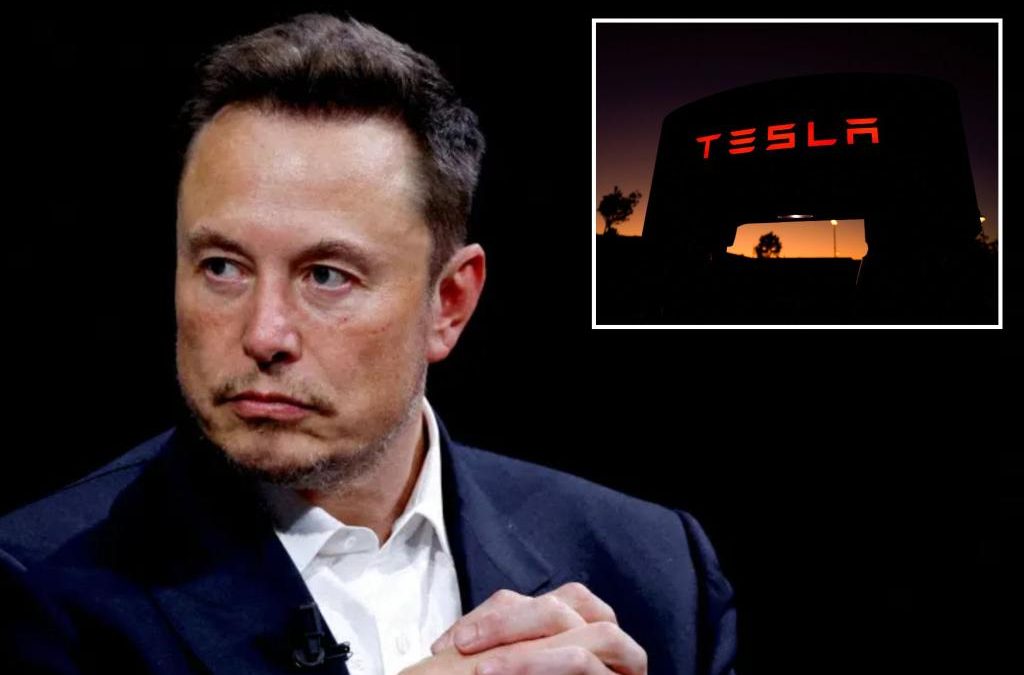Elon Musk’s charity has repeatedly failed to meet the minimum donation threshold as required by tax laws — and could face major penalties from tax authorities as a result, according to a report.
The Musk Foundation, like all charities, is required by law to give away 5% of its assets every year.
In 2021, the Tesla boss, who had just exercised stock options from a bonus plan that netted him $25 billion worth of shares, realized he was on the hook for an $11 billion tax bill.
So Musk, who has been criticized for the relatively paltry sums he has committed to philanthropy when compared with the likes of Bill Gates, chose to save money on taxes by donating a large chunk to his own charity — giving away 5 million shares of Tesla, which were worth $5.7 billion at the time.
The donation left the charity with more than $7 billion in assets — making it one of the largest philanthropic organizations in the country.
But tax records cited by the New York Times show that the Musk Foundation, which was at one time headed by a Russian professional gambler, did not donate the minimum required by law in 2021 and 2022.
In 2021, the Musk Foundation was $41 million short of the minimum threshold. The next year, the shortfall grew to $193 million, according to tax filings.
By the end of 2022, the Musk Foundation was $234 million short of the legally required minimum threshold for giving. There are no available data regarding the charity’s giving in 2023.
According to tax experts, failure to meet the threshold for charitable giving could result in a 30% penalty tax of the amount needed to close the gap.
Whatever money Musk did donate went to causes that indirectly benefited himself and his business, according to the report.
The foundation donated $5 million to a United Nations program that helps countries identify rural schools in need of internet access. At least two of those countries became customers of Starlink, Musk’s satellite internet service.
In 2021, the Musk Foundation paid $55 million to St. Jude Children’s Research Hospital at the behest of Jared Isaacman, a Pennsylvania billionaire who took a flight aboard a SpaceX rocket to orbit the Earth.
Isaacman used his flight as a way to raise money for the hospital by raffling off one of the four seats aboard the SpaceX rocket.
When Isaacman fell short of the $200 million goal he set, Musk pledged on Twitter: “Count me in for $50M.”
Months later, Isaacman said he would pay to board three more SpaceX flights.
Musk’s foundation also set aside funds for the creation of the Ad Astra School, which only has dozens of students — half of whom are the children of SpaceX employees, according to the Times.
Musk’s charity also cut a $10 million check to OpenAI — the AI developer which was co-founded by Musk and other tech titans as a nonprofit.
Musk has stated that he has personally donated $100 million to OpenAI, but he ended up leaving the organization after a power struggle with board members.
OpenAI’s rollout of ChatGPT and its backing by Microsoft have fueled its valuation, which is said to have exceeded $80 billion.
The Post has sought comment from Musk.
Musk has argued in years past that his companies aim to promote the interests of all of humanity — including interplanetary travel and settlement as well as electric cars that reduce the world’s carbon footprint.
“Tesla has done more to help the environment than all other companies combined,” Musk said last year at a New York Times DealBook conference.
“As a leader of the company, I’ve done more for the environment than any single human on Earth.”
Source




